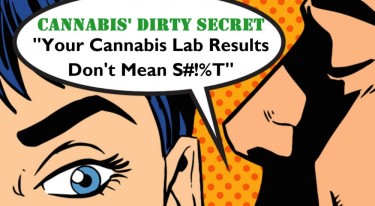Cannabis News
A Quality Seal of Assurance on Hemp Products?
Published
8 months agoon
By
admin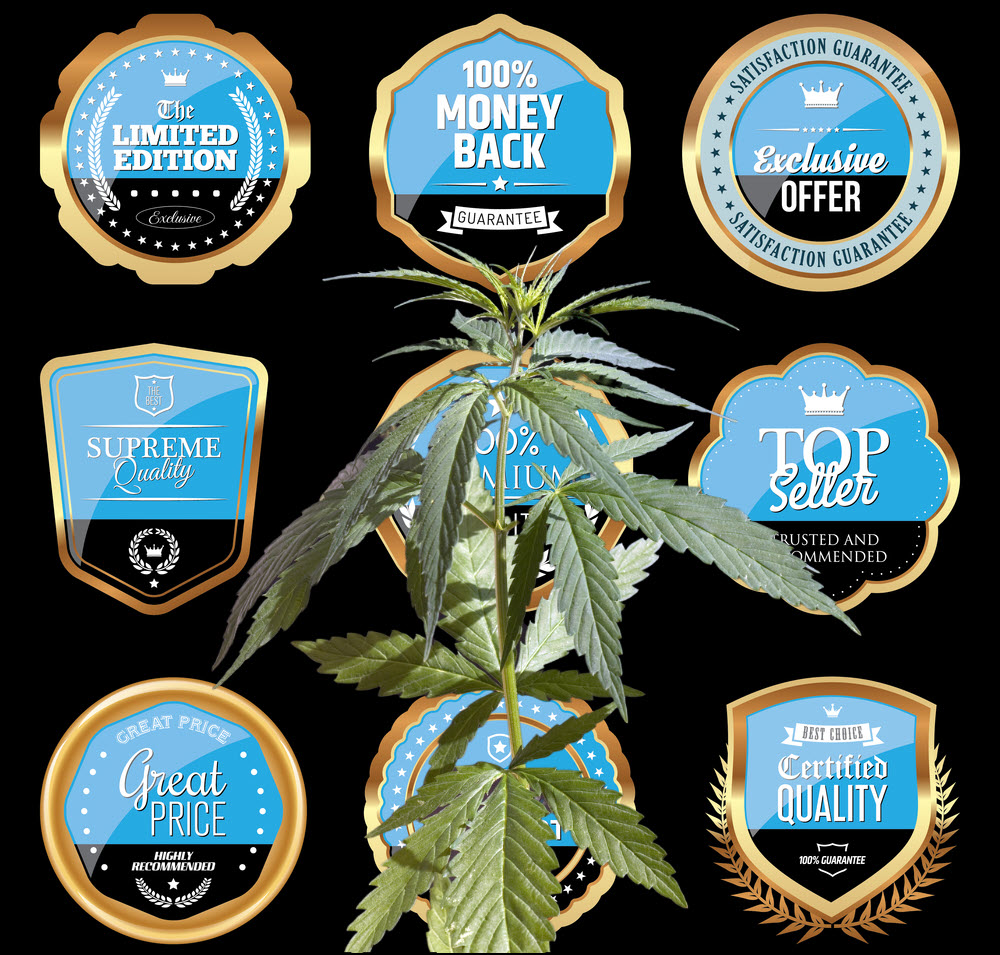
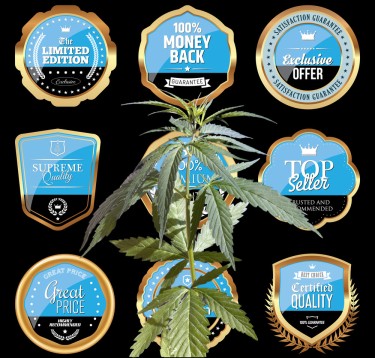
The United States Hemp Authority is working to assure the quality of Delta-8 THC through an upcoming certification procedure. This effort intends to set stringent standards and promote self-regulation in the Delta-8 sector, which is subject to relatively lenient regulatory scrutiny.
While Delta-8 THC is federally lawful, its status varies by state, with certain authorities enforcing restrictions due to safety concerns. The certification scheme would stress sound manufacturing standards, correct labeling, and FDA compliance, all to prevent minors from accessing potentially dangerous items. Notably, the certification will apply to both Delta-8 and Delta-9 THC products.
In recent news, the U.S. Hemp Authority (USHA) unveiled plans for an industry-wide endeavor to uphold elevated standards, optimal practices, and self-governance within the Delta-8 THC market.
Despite its federal legality, Delta-8 THC faces scrutiny in certain states, where it has been proscribed due to safety apprehensions. These measures are particularly prevalent in states where recreational cannabis remains unlawful.
The USHA decried such legislative actions in a press release, attributing them to misguided policymaking that could regress the industry into a state reminiscent of prohibition-era restrictions. Furthermore, the USHA emphasized the adverse impact such measures could have on the hemp sector, American farmers, and small-scale enterprises engaged in the sale of hemp-derived products. Additionally, they underscored the potential denial of access to beneficial health and wellness alternatives for millions of consumers if such prohibitive measures were to be enacted.
Advocating for Regulatory Vigilance
Within the hemp industry, voices advocating for regulatory vigilance emerge, emphasizing the critical need for comprehensive federal oversight to safeguard public health and safety. They underscore the importance of implementing robust regulations to ensure that potentially harmful products, particularly those with intoxicating effects, are effectively controlled and kept out of reach of minors.
The U.S. Hemp Authority (USHA) stands at the forefront of this advocacy, championing the cause for stringent regulatory measures to govern the production and distribution of hemp and CBD products. Central to their argument is the assertion that the core issue lies not solely with Delta-8 THC itself, but rather with the lack of quality control and oversight within an unregulated market landscape.
Given the regulatory loopholes and discrepancies around Delta-8 THC and other THC-based goods, USHA authorities advise implementing a complete certification procedure designed exclusively for non-intoxicating commodities. This program would be designed to maintain and enforce high standards for manufacturing procedures, labeling accuracy, and FDA compliance.
Furthermore, the certification project seeks to address the critical issue of protecting vulnerable people, notably children, from the possible hazards connected with exposure to items that might cause damage. By assuring rigorous adherence to safety measures and regulatory rules, the USHA hopes to reduce the possibility of accidental ingestion and encourage responsible usage among adult consumers.
Understanding Delta-8 THC
Expanding on the topic of cannabinoids, Delta-8 THC is a synthetic derivative that is taken from the Cannabis Sativa L. plant, which is also referred to as hemp. In contrast to Delta-9 THC, which is widely found in cannabis and frequently linked to psychotropic effects, Delta-8 THC has a distinct profile and set of properties.
Delta-8 THC is found in trace amounts in hemp plants, usually in combination with other cannabinoids like CBD and Delta-9 THC. Because this chemical is rare in nature, hemp-derived goods must isolate and concentrate its presence using sophisticated extraction processes.
Unlike traditional THC, Delta-8 THC is federally lawful, which is made possible by the precise wording included in the 2018 Farm Bill. This legislative framework represents a substantial shift from the regulatory restrictions placed on conventional THC products by creating a legal avenue for the production, processing, and distribution of Delta-8 THC-infused commodities throughout the United States.
Though Delta-8 THC is recognized federally, it faces regulatory complexity at the state level due to differing interpretations and safety concerns, which lead certain jurisdictions to impose limits. This disparity emphasizes how cannabis laws are changing and the continuous discussion about how to classify and regulate cannabinoid substances under the larger legal system.
Fostering Industry Transparency and Accountability
In a time when consumers are more conscious and scrutinizing, it becomes imperative to promote accountability and openness in the hemp sector. The U.S. Hemp Authority (USHA) understands how important it is to build customer trust by making sure that products adhere to strict quality standards and are subject to extensive regulatory review. By placing a high priority on openness, the sector may increase credibility and confidence, which will help to create a more vibrant and long-lasting market.
The USHA is committed to providing clear and uniform criteria for hemp and CBD product makers. These criteria include strong production processes, correct labeling protocols, and strict adherence to FDA laws. By complying to these standards, businesses may demonstrate their dedication to quality and safety, boosting customer trust and the industry’s overall image.
Furthermore, encouraging accountability in the hemp industry means making producers answerable for the effectiveness and safety of their goods. The United States Handling Association (USHA) endeavors to guarantee that manufacturers maintain the utmost levels of quality control and product consistency by executing certification programs and conducting routine audits. Greater accountability, transparency, and customer happiness may be achieved by the industry by providing customers with knowledge and confidence about the items they buy.
Bottom Line
In essence, the U.S. Hemp Authority’s announcement of a quality seal certification for Delta-8 THC marks a significant stride in enhancing standards and accountability within the hemp industry. This certification initiative reflects a commitment to safeguarding public health and promoting responsible practices in the production and distribution of hemp-derived products. By addressing regulatory gaps and advocating for stringent oversight, the USHA aims to instill consumer confidence and ensure the safety of products, particularly in light of varying state regulations and concerns over accessibility to minors. Moreover, the emphasis on transparency and accountability underscores a pivotal shift towards building trust and credibility within the industry, essential for its sustained growth and viability. As the regulatory landscape continues to evolve, stakeholders must remain vigilant in upholding rigorous standards and prioritizing consumer well-being. Ultimately, the introduction of this certification program signifies a proactive approach towards fostering a safer, more transparent, and socially responsible hemp industry for all stakeholders involved.
TESTING OUT HEMP PRODUCTS, READ ON…
SMOKING HEMP AND FEELING HIGH? YOU ARE! 90% TEST OUT AS WEED!
You may like
-
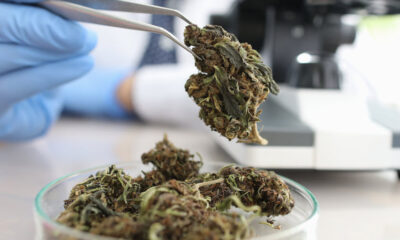

How Do You Stop Lab-Shopping for the Highest THC Results?
-


Happy Holidays from The Canna Law Blog
-


A New Cannabis Christmas Tradition For Santa
-


Cannabis Has A History With Christmas
-


5 Cannabis Christmas Recipes to Try This Holiday Season at Home or the Office Party!
-


Cannabis operators report Instagram page ‘shadow bans’ and closures
Cannabis News
How Do You Stop Lab-Shopping for the Highest THC Results?
Published
2 hours agoon
December 24, 2024By
admin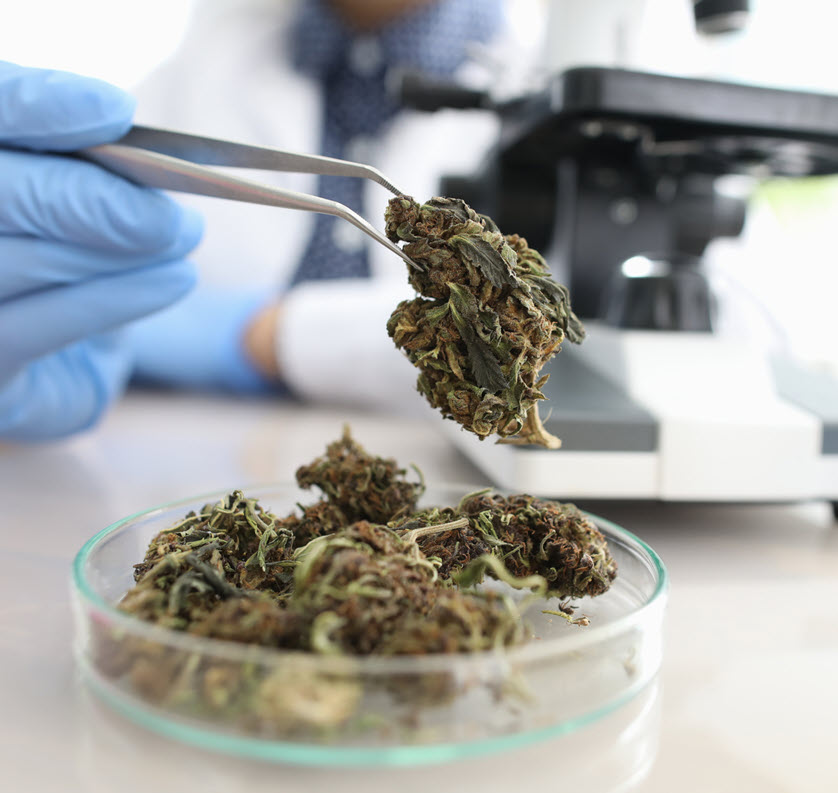
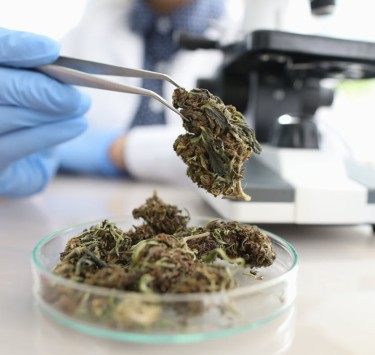
In a decisive move aimed at bolstering consumer safety and ensuring the integrity of cannabis products, Massachusetts regulators have mandated that all cannabis products must undergo testing at a single, licensed laboratory. This new regulation comes in response to the growing issue of “lab shopping,” where cannabis producers seek favorable testing results by sending their products to multiple laboratories. The Massachusetts Cannabis Control Commission (CCC) announced this significant regulatory change after extensive consultations with industry stakeholders, public health officials, and consumer advocates.
This article explores the implications of this regulation for the cannabis industry, consumers, and public health. It also examines the broader context of cannabis regulation in Massachusetts and the potential impact of this decision on the future of the state’s cannabis market.
Understanding Lab Shopping
What is Lab Shopping?
Lab shopping refers to the practice where cannabis producers send their products to various testing laboratories in search of the most favorable results. Producers may choose labs based on their reputation for leniency or their history of providing positive results. This behavior can lead to significant discrepancies in product safety assessments and quality assurance.
The Risks Associated with Lab Shopping
1. Consumer Health Risks: The primary concern surrounding lab shopping is the potential risk it poses to consumer health. Inconsistent testing results mean that products containing harmful contaminants—such as pesticides, heavy metals, or mold—may be sold without proper scrutiny. This can lead to serious health issues for consumers who unknowingly purchase tainted products.
2. Market Integrity: Lab shopping undermines the integrity of the legal cannabis market. When consumers cannot trust that products have been tested rigorously and uniformly, it erodes confidence in legal cannabis sales and can drive customers back to illicit markets where safety standards are nonexistent.
3. Regulatory Challenges: For regulators like the CCC, lab shopping complicates enforcement efforts. It becomes increasingly difficult to monitor compliance when producers can easily switch labs to obtain favorable results, making it challenging to ensure that all products meet established safety standards.
The Regulatory Response
The Role of the Cannabis Control Commission (CCC)
The Massachusetts Cannabis Control Commission is tasked with regulating the state’s cannabis industry. As part of its mandate, the CCC has worked diligently to establish a comprehensive regulatory framework that governs various aspects of cannabis production and sale. However, as the industry has evolved, so too have the challenges associated with ensuring product safety and quality.
In light of growing concerns about lab shopping and its implications for public health and safety, the CCC recognized the need for a more robust regulatory framework. After extensive discussions with industry stakeholders and public health officials, the commission concluded that a single-lab testing requirement was necessary to address these issues effectively.
Implementation of Single-Lab Testing
In late 2023, following thorough deliberation and stakeholder engagement, the CCC announced its new regulation mandating that all cannabis products must be tested by a single licensed laboratory before they can be sold to consumers. This decision aims to achieve several key objectives:
-
Standardize Testing Protocols: By requiring that all products be tested by a single lab, regulators can ensure that all products are subject to consistent testing standards. This uniformity is crucial for maintaining product quality and safety across the market.
-
Enhance Accountability: A single-lab requirement makes it easier for regulators to hold laboratories accountable for their testing practices. If discrepancies arise in testing results, it will be clear which laboratory conducted the tests, facilitating more straightforward investigations.
-
Improve Consumer Confidence: With consistent testing results across all products, consumers can feel more secure in their purchases. This increased confidence is vital for fostering a healthy legal cannabis market in Massachusetts.
Implications of Single-Lab Testing
For Producers
1. Increased Accountability: Producers will need to establish relationships with specific laboratories and ensure that their products meet stringent quality standards before submission for testing. This shift will require producers to invest more in quality control measures throughout their production processes.
2. Potential Cost Implications: While single-lab testing may streamline processes for some producers, it could also lead to increased costs if producers are required to pay higher fees for comprehensive testing services. Smaller producers may find it particularly challenging to absorb these costs.
3. Adaptation Period: Producers will need time to adjust their operations and supply chains to comply with this new regulation. This may involve reevaluating partnerships with existing labs or investing in new quality control measures.
4. Impact on Product Development: The requirement for single-lab testing may also influence how producers develop new products. With fewer laboratories available for testing, producers may need to plan their product launches more carefully and allow additional time for testing processes.
For Laboratories
1. Increased Demand for Services: Licensed laboratories may experience an increase in demand as producers consolidate their testing needs with fewer facilities. This could lead to higher revenues for labs but also increased pressure on them to maintain high-quality standards amidst growing workloads.
2. Need for Enhanced Capabilities: Laboratories will need to ensure they have the capacity and technology necessary to handle increased volumes of samples while maintaining rigorous quality control measures. This may require investments in new equipment or hiring additional staff.
3. Regulatory Compliance: Laboratories will face heightened scrutiny from regulators as they become key players in ensuring product safety. They will need to demonstrate compliance with all relevant regulations and maintain transparent practices regarding their testing methodologies.
For Consumers
1. Improved Product Safety: The primary benefit for consumers is enhanced safety assurance. With standardized testing protocols in place, consumers can trust that cannabis products have been thoroughly vetted for contaminants and potency before reaching store shelves.
2. Greater Transparency: As part of this regulatory shift, there may be increased transparency regarding testing results and laboratory practices. Consumers will have access to clearer information about what goes into their cannabis products, empowering them to make informed choices.
3. Potential Price Increases: While improved safety is paramount, there is a possibility that compliance costs could be passed on to consumers through higher prices for cannabis products. Producers may need to adjust their pricing structures in response to increased operational costs associated with single-lab testing.
Cannabis Regulation in Massachusetts
Historical Overview
Massachusetts was one of the first states in New England to legalize recreational cannabis use following the passage of Question 4 in 2016. The legalization marked a significant shift in public policy and opened up a new economic sector within the state. However, as with any emerging industry, challenges quickly arose—particularly concerning product safety and quality assurance.
Existing Regulatory Framework
Prior to the introduction of single-lab testing regulations, Massachusetts had established a comprehensive regulatory framework governing various aspects of cannabis production and sale:
Despite these measures, lab shopping highlighted gaps in enforcement and compliance that necessitated further action from regulators.
Industry Reactions
Support from Public Health Advocates
Public health advocates have largely welcomed the CCC’s decision to implement single-lab testing as a crucial step toward safeguarding public health by ensuring that all cannabis products meet consistent safety standards. Many believe this regulation will help prevent contaminated or substandard products from reaching consumers while bolstering trust in legal cannabis sales.
Dr. Emily Thompson, a public health expert at Harvard University, stated, “This regulation is essential for protecting consumers from potential health risks associated with contaminated cannabis products.”
Concerns from Industry Stakeholders
Conversely, some industry stakeholders have expressed concerns about potential drawbacks:
1. Operational Challenges: Smaller producers may find it difficult to navigate relationships with larger laboratories or face delays in getting their products tested due to increased demand at those facilities.
2. Innovation Stifling: Critics argue that requiring single-lab testing could stifle innovation within the industry by limiting producers’ options for exploring different testing methodologies or technologies offered by various labs.
3. Market Dynamics: There are worries that this regulation could create monopolistic tendencies within laboratory services if only a few labs dominate the market due to increased demand from producers seeking reliable test results.
4. Impact on Small Businesses: Small-scale cultivators might struggle more than larger companies due to limited resources and access to high-quality labs capable of meeting stringent requirements without significantly raising costs.
Future Outlook
As Massachusetts implements this new regulation mandating single-lab testing for all cannabis products sold within its borders, it sets an important precedent that other states may consider as they navigate similar challenges within their own burgeoning cannabis markets.
Potential National Implications
The decision by Massachusetts regulators could influence national discussions around cannabis regulation as other states look toward creating frameworks that prioritize consumer safety while fostering industry growth:
-
Increased Interest from Other States: States grappling with similar issues related to lab shopping may look closely at Massachusetts’ approach as they develop their own regulations.
-
Collaboration Among States: As states continue legalizing recreational marijuana use across the country, there may be opportunities for collaboration on best practices regarding product safety standards and laboratory oversight.
-
Federal Considerations: With ongoing discussions about federal legalization of marijuana gaining traction nationally—especially amid shifting political landscapes—regulatory models like those emerging from Massachusetts could serve as templates for future federal guidelines governing cannabis production and sale across state lines.
Conclusion
The Massachusetts Cannabis Control Commission’s mandate for single-lab testing represents a pivotal shift in evaluating cannabis products for safety and quality assurance within one of the nation’s most dynamic legal marijuana markets. By targeting the issue of lab shopping, this regulation prioritizes consumer protection, aiming to enhance public health outcomes and rebuild confidence in the safety of legalized cannabis products. While the transition poses challenges for producers adapting operational processes and laboratories scaling their capabilities, the regulation seeks to balance fostering innovation in an evolving industry with rigorous oversight mechanisms. As Massachusetts refines its regulatory framework, balancing the interests of regulators and profit-driven stakeholders, collaboration will be essential to thriving under these new guidelines. This change not only advances the state’s cannabis sector but also sets a potential standard for other states to ensure safe consumption and responsible business practices in the growing marijuana industry.
LAB SHOPPING FOR HIGH THC RESULTS? READ ON…
Cannabis News
Happy Holidays from The Canna Law Blog
Published
3 hours agoon
December 24, 2024By
admin
Wishing all of our readers, along with friends and families, the very best this holiday season.
Whether you celebrate Hanukkah, Christmas, Kwanzaa, Winter Solstice, Festivus, or something else, we hope you can kick back and enjoy this wonderful time of the year.
The post Happy Holidays from The Canna Law Blog appeared first on Harris Sliwoski LLP.
Cannabis News
5 Cannabis Christmas Recipes to Try This Holiday Season at Home or the Office Party!
Published
1 day agoon
December 23, 2024By
admin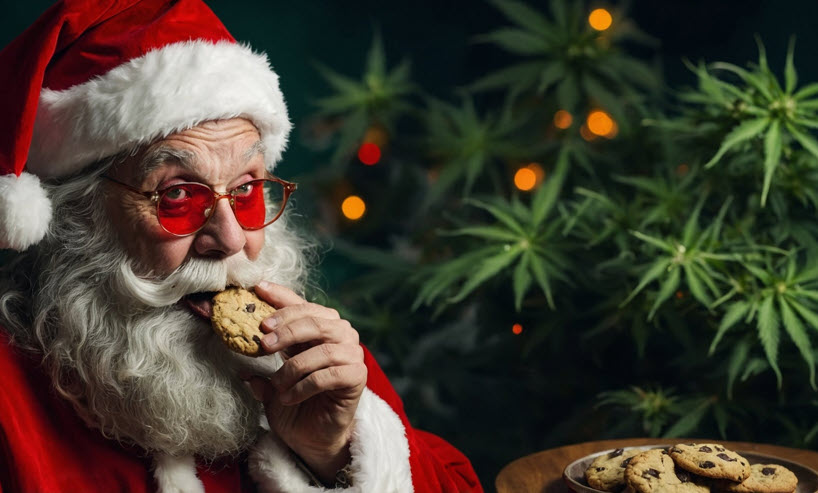

Ah yes, it’s that magical time of year again when Ganja Clause slides down the chimney to visit all the good little stoners. The lights are twinkling, the fire is crackling, and the sweet aroma of cannabis-infused treats fills the air. As someone who’s spent years experimenting with cannabis cuisine, I’ve learned that the holidays present the perfect opportunity to elevate traditional recipes to new heights.
To help make your holidaze more “dazey,” I’ve crafted five festive recipes that combine seasonal favorites with our favorite herb. These dishes aren’t just about getting high – they’re about creating memorable experiences and new traditions. But before we dive in, I need to emphasize something crucial: dosing is always important, and you should NEVER give these recipes to anyone without their explicit consent. While sharing is caring, tricking someone into consuming cannabis is not only unethical but potentially illegal. Always clearly label your infused treats and keep them safely away from children and unsuspecting guests.
With those important notes out of the way, let’s get into these magical recipes that will make your holiday season extra special.
Look, we all know eggnog is a holiday staple, but why not kick it up a notch? This cannabis-infused version will have you feeling jolly in no time. Just remember – this isn’t your grandma’s recipe (unless your grandma is really cool).
What You’ll Need:
-
4 cups milk (or non-dairy alternative if that’s your jam)
-
1 cup heavy cream (or coconut cream for you plant-based folks)
-
6 egg yolks (fresh is best, trust me)
-
1/2 cup sugar
-
1 tsp vanilla extract
-
1/2 tsp ground nutmeg
-
1 tbsp cannabis tincture or cannabis-infused syrup
The Magic Process:
-
Start by heating your milk and cream in a saucepan. You want it hot but not boiling – we’re making eggnog, not scrambled eggs.
-
In a separate bowl, whisk those egg yolks, sugar, and vanilla until they’re well combined and looking smooth.
-
Here’s the tricky part: slowly (and I mean SLOWLY) add the hot milk mixture to your egg mixture while whisking constantly. If you dump it all in at once, you’ll end up with sweet scrambled eggs, and nobody wants that.
-
Pour everything back into your saucepan and cook over medium heat, stirring constantly until it thickens enough to coat the back of a spoon.
-
Remove from heat, stir in that nutmeg, and let it cool a bit before adding your cannabis tincture or syrup.
-
Chill thoroughly before serving.
Pro tip: Start with a small serving – this stuff can creep up on you!
Want to elevate your holiday meal? This gravy will take your feast to new heights. It’s perfect for drowning those mashed potatoes or smothering that turkey.
The Goods:
-
2 cups chicken or vegetable stock
-
1/4 cup all-purpose flour
-
1/4 cup cannabis butter (cannabutter)
-
1/2 tsp salt
-
1/4 tsp black pepper
-
1 tbsp chopped fresh herbs (thyme or rosemary work great)
The How-To:
-
Melt your cannabutter over medium heat in a saucepan. Watch it carefully – burnt butter is not the vibe we’re going for.
-
Whisk in the flour to create your roux. Cook it for about 1-2 minutes to get rid of that raw flour taste.
-
Now, slowly pour in your stock while whisking like your life depends on it. No lumps allowed!
-
Add your seasonings and herbs.
-
Keep stirring and simmering until it reaches your desired thickness.
-
Taste and adjust seasonings if needed (before you get too lifted).
Remember: Label this clearly! You don’t want Aunt Martha accidentally pouring this all over her plate without knowing what’s up.
Forget that canned stuff – this homemade cranberry sauce with a special twist will have everyone at the table asking for seconds (though you might want to limit them to just one serving).
The Ingredients:
Getting Saucy:
-
Toss your cranberries, OJ, and sugar into a saucepan over medium heat.
-
Let it cook until those cranberries start popping like tiny little fireworks (about 10 minutes).
-
Once it’s thickened up nicely, remove from heat.
-
Here comes the fun part – stir in your cannabis-infused honey or tincture.
-
Let it cool completely before serving.
Pro tip: Make two batches – one regular and one infused. Just make sure to label them clearly!
These aren’t your regular sweet potatoes – they’re elevated sweet potatoes. Perfect for getting baked while getting baked.
What You Need:
-
4 large sweet potatoes
-
1/2 cup cannabis butter (cannabutter)
-
1/4 cup brown sugar
-
1 tsp ground cinnamon
-
1/2 tsp ground nutmeg
-
Salt to taste
-
Marshmallows (optional, but highly recommended)
The Method:
-
Preheat your oven to 375°F (190°C).
-
Bake those sweet potatoes until they’re tender (about an hour).
-
Once they’re cool enough to handle, peel and mash them up.
-
Mix in your cannabutter, brown sugar, and spices.
-
Transfer to a baking dish.
-
If you’re feeling extra, top with marshmallows.
-
Bake for another 20-30 minutes until everything’s golden brown and gorgeous.
Warning: These are dangerously delicious – pace yourself!
This warm, spicy cider will lift your spirits in more ways than one. Perfect for those chilly winter nights.
The Essentials:
The Process:
-
Pour your cider into a large pot.
-
Add your cinnamon sticks, cloves, and orange slices.
-
Heat until it just starts to bubble, then reduce to a simmer.
-
Add your cannabis-infused maple syrup (or add tincture to individual cups for controlled dosing).
-
Let everything mingle and get cozy for about 20 minutes.
-
Serve it up warm with an orange slice or cinnamon stick garnish.
Pro tip: Keep a non-infused batch warming for designated drivers and non-partaking guests.
Remember folks, the key to a successful Dankmas feast is clear labeling and careful dosing. Nothing ruins a holiday gathering quite like someone getting unexpectedly zooted. Happy cooking, and may your holidays be dank and delightful!
There you have it, folks – five unique ways to spice up your Dankmas traditions and make the season truly memorable. As someone who’s hosted many cannabis-friendly holiday gatherings, I can’t stress enough the importance of starting slow with these recipes. Edibles can take anywhere from 30 minutes to two hours to fully kick in, and you definitely don’t want to overdo it during family dinner. I strongly recommend doing a test run with different dosages before the big day to find your sweet spot.
What I love most about these recipes is that they offer a fantastic alternative for those looking to skip the traditional alcohol-heavy holiday celebrations. Cannabis provides a more natural way to unwind and connect with loved ones during this special time of year. Plus, you won’t have to worry about a hangover the next morning!
Remember to celebrate responsibly, be open about what’s infused and what isn’t, and most importantly, enjoy the magic of the season. Happy Dankmas to all, and to all a good height!
MORE DANKMAS STORIES, READ ON…

How Do You Stop Lab-Shopping for the Highest THC Results?

Happy Holidays from The Canna Law Blog

A New Cannabis Christmas Tradition For Santa

Cannabis Has A History With Christmas

5 Cannabis Christmas Recipes to Try This Holiday Season at Home or the Office Party!

Cannabis operators report Instagram page ‘shadow bans’ and closures

How Interstate Commerce is Driving the Growth of Hemp-Derived Consumer Products

The Grinch Stole SAFE Banking from the Cannabis Industry This Christmas, Yet Again!

HHC vs. Delta 9: Differences & Similarities
DOJ Asks Federal Court To Deny Doctors’ Lawsuit Over Marijuana Rescheduling Hearing To Avoid ‘Undue Delay’

Distressed Cannabis Business Takeaways – Canna Law Blog™

United States: Alex Malyshev And Melinda Fellner Discuss The Intersection Of Tax And Cannabis In New Video Series – Part VI: Licensing (Video)

What you Need to Know

Drug Testing for Marijuana – The Joint Blog

NCIA Write About Their Equity Scholarship Program

It has been a wild news week – here’s how CBD and weed can help you relax

Cannabis, alcohol firm SNDL loses CA$372.4 million in 2022

A new April 20 cannabis contest includes a $40,000 purse

Your Go-To Source for Cannabis Logos and Designs

UArizona launches online cannabis compliance online course
Trending
-

 Cannabis News2 years ago
Cannabis News2 years agoDistressed Cannabis Business Takeaways – Canna Law Blog™
-

 One-Hit Wonders2 years ago
One-Hit Wonders2 years agoUnited States: Alex Malyshev And Melinda Fellner Discuss The Intersection Of Tax And Cannabis In New Video Series – Part VI: Licensing (Video)
-

 Cannabis 1012 years ago
Cannabis 1012 years agoWhat you Need to Know
-

 drug testing1 year ago
drug testing1 year agoDrug Testing for Marijuana – The Joint Blog
-

 Education2 years ago
Education2 years agoNCIA Write About Their Equity Scholarship Program
-

 Cannabis2 years ago
Cannabis2 years agoIt has been a wild news week – here’s how CBD and weed can help you relax
-

 Marijuana Business Daily2 years ago
Marijuana Business Daily2 years agoCannabis, alcohol firm SNDL loses CA$372.4 million in 2022
-

 California2 years ago
California2 years agoA new April 20 cannabis contest includes a $40,000 purse





